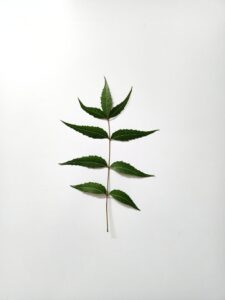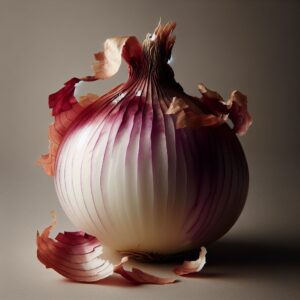
Key Takeaways
- Goji berries and black sesame seeds are natural superfoods that can help rejuvenate postpartum hair.
- Goji berries are rich in vitamins and minerals that promote hair growth and scalp health.
- Black sesame seeds contain essential fatty acids and nutrients vital for maintaining healthy hair.
- Including these superfoods in your diet can be simple, with a variety of recipes and methods available.
- Natural topical treatments like hair masks can enhance hair vitality from the outside.
As we navigate the journey of motherhood, our bodies undergo countless changes, and one that often catches us by surprise is the condition of our hair postpartum. If you’ve noticed your hair isn’t quite the crowning glory it once was, you’re not alone. But here’s the good news: Mother Nature has provided us with some incredible superfoods that can help bring back that luster and strength to your locks, and I’m here to share these secrets with you.
Most importantly, let’s dive into the world of goji berries and black sesame seeds, two powerhouse ingredients that are not just good for your overall health but are specifically beneficial for postpartum hair rejuvenation.
Goji Berries: A Superfood for Hair Growth
When it comes to hair care, it’s not just about what you put on your hair, but also about what you put in your body. Goji berries are a prime example of a nutrient-rich superfood that supports hair growth from the inside out.
What Makes Goji Berries Special?
Goji berries, also known as wolfberries, are not just a tasty snack; they are a nutritional powerhouse. Packed with vitamins A and C, iron, zinc, and antioxidants, these little red berries have a big job when it comes to your hair. Vitamin A encourages healthy production of sebum in the scalp, vitamin C aids in the production of collagen, and antioxidants help protect against free radical damage.
How Goji Berries Promote Hair Regrowth
So, why are these nutrients important for postpartum hair? After giving birth, the shift in hormones can cause your hair to fall out more than usual. By providing your body with the right nutrients, you can support the natural hair growth cycle. Goji berries, with their rich nutritional profile, help in:
- Improving blood flow to the scalp, encouraging hair growth.
- Strengthening the hair follicles due to their antioxidant properties.
- Enhancing the immune system, which can indirectly affect hair health.
Simple Ways to Include Goji Berries in Your Diet
Incorporating goji berries into your diet is simple and delicious. You can:
- Snack on dried goji berries just like you would with raisins.
- Add them to your morning cereal or yogurt for a nutrient boost.
- Blend them into smoothies for a tasty and healthy treat.
Remember, consistency is key. Make goji berries a regular part of your diet to see the best results for your hair.

Black Sesame Seeds: Ancient Secret for Lustrous Locks
But we’re not stopping at goji berries. Let’s talk about another ancient secret that’s been used for centuries to promote not just long life and good health but also to bring a shine to one’s hair: black sesame seeds.
The Nutritional Profile of Black Sesame
Black sesame seeds may be tiny, but they are filled with nutrients that are essential for hair health. They are an excellent source of protein, fiber, omega-3 and omega-6 fatty acids, as well as a variety of minerals including calcium, magnesium, and zinc. These components are crucial for creating a fertile ground for healthy hair to grow.
Benefits of Black Sesame for Postpartum Hair
For those of us dealing with postpartum hair issues, black sesame seeds can be a game-changer. Here’s how:
- They can help prevent premature graying due to their rich melanin content.
- Their high zinc content promotes hair growth by enhancing the immune function.
- Omega fatty acids in black sesame seeds nourish the hair and scalp.
Because they’re so versatile, you can easily add black sesame seeds to your diet. Sprinkle them over salads, mix them into granola, or use them as a crunchy coating for your proteins.
Together, goji berries and black sesame seeds form a dynamic duo for postpartum hair care. Stay tuned as we delve deeper into how to incorporate these superfoods into your meals and explore topical treatments to rejuvenate your hair.
Creative Culinary Uses of Black Sesame
Black sesame seeds aren’t just for hair health; they’re a culinary delight as well. Their rich, nutty flavor can enhance any dish, from sweet to savory. Here’s how you can get creative in the kitchen:
Blend black sesame seeds into a smooth paste, known as tahini, and use it as a base for dressings or sauces. Or, if you have a sweet tooth, consider black sesame ice cream – a popular treat in many Asian cuisines that’s not only delicious but beneficial for your hair. You can even bake with black sesame seeds, incorporating them into breads, muffins, or as a crust for your cheesecake. The options are truly endless.
Balancing Your Postpartum Diet for Hair Health
- Include a variety of proteins in your meals, such as lean meats, beans, and tofu, to provide the amino acids needed for hair growth.
- Incorporate iron-rich foods like spinach and lentils to prevent anemia, a common postpartum condition that can exacerbate hair loss.
- Add foods high in omega-3 fatty acids, like salmon and flaxseeds, to nourish your scalp and hair.
- Stay hydrated by drinking plenty of water, which helps maintain the health of your hair follicles.
- Consider a postnatal multivitamin, with your doctor’s approval, to ensure you’re getting the necessary nutrients for hair growth.
By creating a balanced diet that includes these foods, you’ll not only promote hair growth but also improve your overall postpartum recovery.
It’s important to remember that your body has undergone significant changes during pregnancy and childbirth. Giving it the right nutrients is crucial for recovery and for tackling issues like postpartum hair loss. This doesn’t mean you have to overhaul your diet overnight. Start small, make incremental changes, and listen to your body’s needs.
Don’t forget, patience is key. Hair growth doesn’t happen overnight, but with a consistent, nutrient-rich diet, you’ll be on your way to healthier, stronger hair.
Integrating Goji Berries and Black Sesame
It’s simpler than you might think to add goji berries and black sesame seeds to your daily meals. For example, you can make a power-packed breakfast by topping your oatmeal with goji berries and a sprinkle of black sesame seeds. Or, add them to your salad for a crunchy texture and a nutritional boost. These small changes can make a big difference in your hair’s health and your overall well-being.
Meal Planning for Optimal Hair Nourishment
Meal planning is your best friend when it comes to incorporating these superfoods into your diet. At the start of the week, plan out your meals to include goji berries and black sesame seeds. Prepare a big batch of a goji berry and black sesame seed granola to have on hand for quick breakfasts or snacks. Make a black sesame seed dressing to drizzle over steamed vegetables or salads. By planning ahead, you ensure that you’re getting the nutrients you need without the stress of last-minute decisions.
Topical Treatments: Enhancing Hair Vitality from the Outside
While diet plays a crucial role in hair health, topical treatments can provide additional benefits. Natural ingredients like goji berries and black sesame can be used in hair masks and serums to directly nourish the scalp and hair strands.
DIY Hair Masks with Goji Berries and Black Sesame
Creating a hair mask at home is easier than you think, and it can be a relaxing part of your self-care routine. To make a goji berry hair mask, blend soaked goji berries into a paste and mix with coconut oil. Apply this mixture to your scalp and hair, leave it on for about 30 minutes, then rinse thoroughly. The antioxidants and vitamins in the goji berries, combined with the moisturizing properties of coconut oil, can help rejuvenate your hair.
Natural Oils and Serums for Postpartum Hair Care
Natural oils and serums are excellent for postpartum hair care. Here are a few to consider:
- Argan oil is rich in vitamin E and essential fatty acids, making it perfect for hydrating the hair and scalp.
- Castor oil is known for its hair growth-promoting properties.
- Black sesame oil, used in traditional medicine, can be massaged into the scalp to improve blood circulation and hair health.
When using oils, a little goes a long way. Massage a small amount into your scalp and through your hair, then wrap your head in a warm towel to enhance absorption. Leave the oil in for at least an hour, or overnight if possible, before washing out with a gentle shampoo.
Remember, consistency is key with these treatments. Make them a regular part of your hair care routine for the best results.
Tips from Mothers Who’ve Triumphed Over Hair Loss
Real-life experiences can be incredibly valuable when it comes to postpartum hair care. Mothers who have been through this journey often have practical tips that can make a world of difference.
Real-Life Success Stories
One mother shared that incorporating a smoothie with goji berries, spinach, and flaxseeds into her daily routine not only helped with her energy levels but also noticeably improved her hair’s thickness and shine. Another found that regularly applying a black sesame seed oil scalp massage helped her hair feel fuller and more vibrant.
Practical Advice for Sustainable Hair Care Routines
Here are some practical pieces of advice from mothers who’ve seen improvements in their postpartum hair:
- Set aside time each week for hair care, just as you would for any other important appointment.
- Keep your hair care routine simple to ensure it’s sustainable with your new lifestyle as a mom.
- Stay patient and positive – hair growth takes time, and stress can counteract your efforts.
By taking these real-life tips to heart and combining them with the nutritional power of goji berries and black sesame seeds, you’re well on your way to revitalizing your postpartum hair.
Laying the Groundwork for Long-Term Hair Health
Embarking on the journey to rejuvenate your postpartum hair requires more than just a one-time effort; it’s about laying a foundation for long-term health. Just like a garden, your hair needs consistent care and the right nutrients to flourish. Let’s talk about how to maintain this over time.
Maintaining Consistency with Your Superfood Rituals
Consistency is the cornerstone of any successful hair care regimen, especially when it comes to incorporating superfoods like goji berries and black sesame seeds into your diet. Make these foods a staple in your pantry and get creative with how you use them. Remember, the goal is to nourish your body so that your hair can recover and thrive postpartum.
Here’s how you can keep up with your superfood intake:
- Prepare snacks in advance, like goji berry trail mix or black sesame energy balls.
- Experiment with new recipes each week that incorporate these ingredients.
- Set reminders to include these superfoods in at least one meal a day.
Monitoring Results and Adjusting As Needed
As you integrate these superfoods into your life, keep an eye on the changes in your hair and overall health. It’s essential to monitor the results and be willing to adjust your approach if necessary. If you’re not seeing the improvement you hoped for, consider consulting with a nutritionist or a healthcare provider to refine your strategy.
Documenting your hair’s progress can also be incredibly motivating. Take pictures monthly to visually track the changes and celebrate your successes!
Frequently Asked Questions
How Long Does Postpartum Hair Loss Last?
Typically, postpartum hair loss is a temporary phase that can last anywhere from six months to a year after childbirth. However, everyone’s experience is unique, and various factors, including diet, stress levels, and genetics, can influence the duration of hair loss.
Can Diet Alone Reverse Postpartum Hair Loss?
While diet plays a significant role in hair health, it’s one part of a larger picture. A balanced diet rich in essential nutrients can support hair growth, but it’s also important to manage stress, get adequate sleep, and maintain a gentle hair care routine.
How Often Should I Use Hair Masks?
For most hair types, using a hair mask once a week is a good rule of thumb. However, if your hair is particularly dry or damaged, you might benefit from using a mask twice a week. Pay attention to how your hair responds and adjust accordingly.
Are These Foods Safe for Breastfeeding Mothers?
Goji berries and black sesame seeds are generally considered safe for breastfeeding mothers, but it’s always best to consult with your healthcare provider before making significant changes to your diet, especially when breastfeeding.


